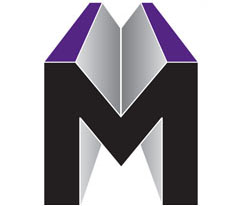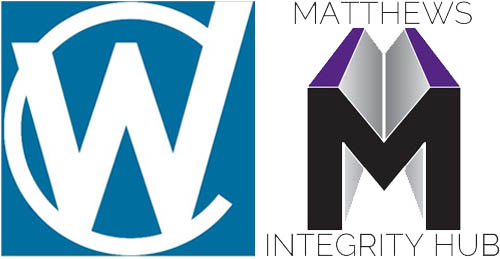View from the BIG HOUSE
Institution membership and CPD
Who lives in the BIG HOUSE?
The Engineering Institutions do. There are no less than 35 of these registered with the Engineering Council which acts as the main co-ordinating and standards-setting body for the engineering industry. They’ve got an excellent website at https://engc.org.uk explaining how it all works.

What are engineering Institutions for?
I suppose we should tell you what the Institutions would want us to tell you. The Engineering Council holds the national Register of over 220,000 people registered with the various Institutions divided into four main categories:
• Engineering Technicians (EngTech)
• Incorporated Engineers (IEng)
• Chartered Engineers (CEng)
• Information and Communications Technology Technicians (ICTTech)
These titles are called ‘post-nominals’ and you can use them after your name, just as you would BEng, MEng, MP (member of parliament),or GCB (Dame Grand Cross of the Order of the Bath) and stuff like that.
The purpose of the Institutions is to serve their members in the engineering professions, maintain standards and act as a focus for the various parts of the industry. Professional registration is a keystone activity, helping to maintain the structure for qualifications and competence.
Have a look at The Pink Book
Here at Matthews Integrity Hub: HEAD OFFICE how could we possibly ignore anything with the title ‘Pink Book’? Yes it does exist, published by the Engineering Council www.engc.org.uk/media/2235/pink-book-2017.pdf It’s an excellent guide to registration across all the Institutions. We can’t fault it, even if it does repeat itself a bit.
Professional Development: IPD and CPD
The Engineering Council drives this also. As graduates most of you will have heard of them. They are activities you have to do in your working environment in order to achieve and maintain your registered status. Knowledge, understanding, training and experience all form part of the picture and follow the guidelines set out in the UK Standard for Engineering Competence (UK-SPEC) www.engc.org.uk/ukspec.aspx
Initial Professional Development (IPD)
IPD refers to the workplace development that takes place before you become professionally registered as EngTech, IEng, or CEng. It is normally carried out through structured programmes such as an apprenticeship or a graduate training scheme. These employer schemes may be accredited or approved by one or more of the professional engineering institutions.
Continuing Professional Development (CPD)
CPD is continuing to learn after you have achieved registration. It can be wide and varies consisting of informal interaction with others in the industry or more formally as training courses, preparation of papers and things like that.
There’s a thing called mycareerpath®;an online professional development system, designed by the Engineering Council and adopted by many professional engineering institutions for use by their members. It is mobile and tablet compatible, and the system is aligned with (UK-SPEC) for EngTech, IEng, and CEng. It sounds like a good idea to help keep your CPD information together.

Aim for a special relationship
As a new graduate in the integrity industry, it’s good to have as much help as you can get. Employers like to agree with the objectives and principles of Institution Registration and will often link salary incentives to achieving IEng or CEng status. It also gives them a ready-made scheme to participate in without having to think up a new system themselves, so you can expect them to sing its praises.
It’s sound advice to develop a good relationship with your chosen Institution. A lot of graduates don’t try that hard, and just do the minimum, so it’ll be an advantage to you if you put the extra effort in. See if you can get on first-name terms with your Institution membership officer, and go from there.
That’s the view from the Institution BIG HOUSE, as per the title of the article.
Institutions: The view from THE EDGE OF THE WORLD
If you were sat on the edge, looking into the world, you could be forgiven for thinking that Institutions, in fact all organisations, aren’t real. They would appear to you as networks of people, sharing some part-time common purpose that had somehow become defined, but that didn’t, collectively, actually do anything. The people within them would all be doing things, that’s for sure, but most of their day’s activities of work and leisure would continue, whether the organisation and its inevitable boards of managers and committees were there or not.
This would apply to all organisations, from the smallest businesses to the largest Institutions in the world like health services, political parties, global companies and even the arbitrary Institutions defined by the geographical boundaries we call countries. They’re nothing but artificial mental constructs; all of them.
This might make you think; exactly why do these strange mental constructs exist, if they don’t actually do anything?
One theory is that this desire to form themselves into common-purpose groups is the main hard-wired feature of the human species that makes it special. It’s not the concept of co-operation that makes humans unique (ants, birds, fish and pack animals like wolves all do it) but it is the depth and particularly the extent of the co-operation we can handle that has made us the dominant species.
Look how good we are at it. We can invent mental constructs of shared purpose with hundreds of other people of all types (a company), or millions (a country) or billions around the world (a religion) without even thinking about it. Other animals can’t do that; they stick to their family or small groups and that’s that. With us, it just seems to happen. Bizarrely, we start and end each day pre-programmed to pretend these Institutions are all real, discussing them as if they were, even though we know better. It’s all to do with how we ended up in charge.
That could be why there are Institutions for just about everything.
Wondering about where things in the integrity industry are leading? try our article; Snakes and Swarms: The robots are coming
Qualifications and Certifications
Degrees and fancy letters after your name aside, Personnel Certifications from Industry organisations such as API (American Petroleum Institute) and others are what really drive the career structures in the integrity and inspection industries. There’s a well-developed structure of them in various countries of the world and some of them are worth having. You can see the details on our Qualifications and Training webpage
We offer a TRIAL TECHNICAL INTERVIEW
If you want to check your knowledge for a specific job role in the integrity industry then try our trial technical interview. Its purpose is to test you on the technical aspects of the job you are thinking of applying for. There’s no time limit on it but expect it to last at least 20 minutes. After the discussion we’ll give you honest feedback on how you did. Just let us know the type of position you are going for; we’ll do the rest and respond with at time slot for you to call us.
There’s no charge, but we will expect you to call us at the allocated time and be ready to answer technical questions.
Remember your trial interview is on a purely technical subjects. We are not interested in you personality traits, do-gooding activities or any wonderful extra-curricular interests you may have.







